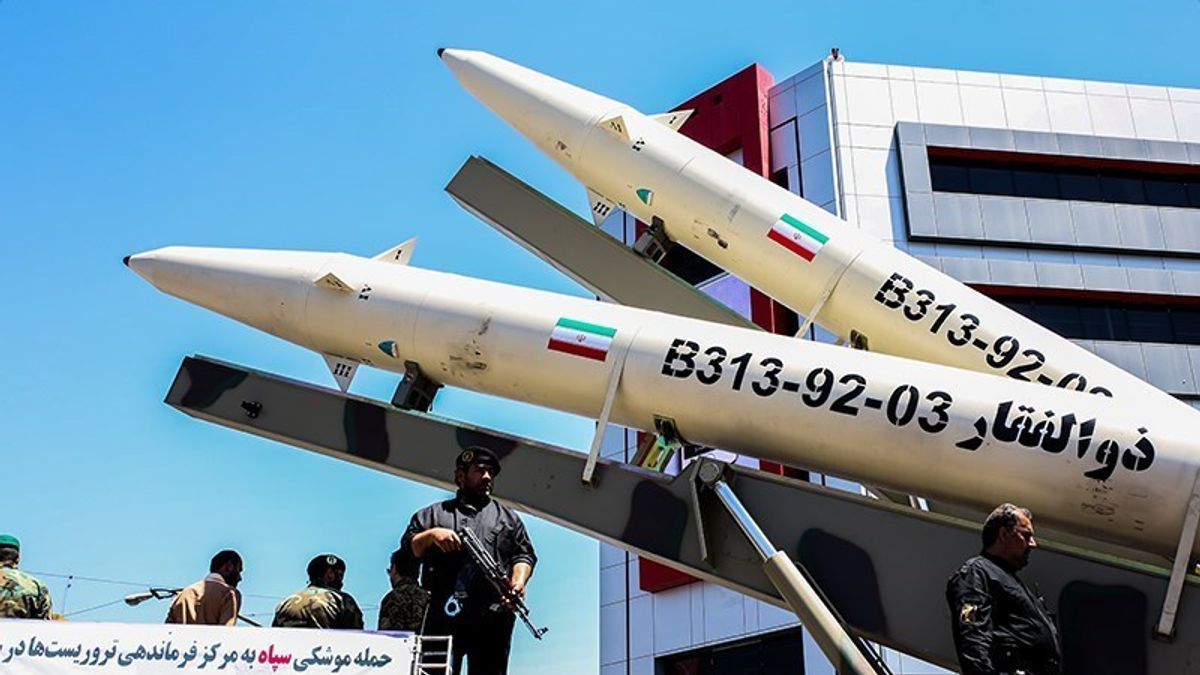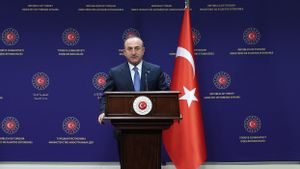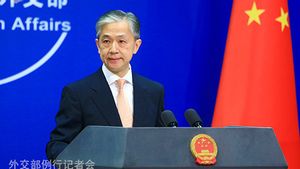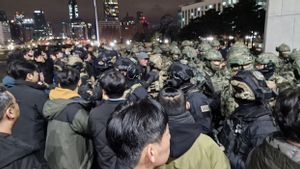JAKARTA - President Joe Biden said on Sunday the United States "continues to suffer" from former President Donald Trump's decision to withdraw from the nuclear deal with Iran.
"We continue to suffer from the very bad decision President Trump made to withdraw from the JCPOA," President Biden told reporters at a press conference at the G20 summit in Rome, using the acronym for the nuclear agreement's official name, the Joint Comprehensive Plan of Action (JCPOA). November 1st.
The Iran nuclear deal was abandoned by the US under the Trump administration. Talks to revive the deal in Vienna were suspended at the end of June, after six rounds between Iran, China, Germany, France, Russia, Britain, and indirectly with the United States.
President Joe Biden's administration has promised to re-enter the deal, but the President's negotiators have been faced with difficult talks and decisions about how to do it.
At the same time, Iran is starting to enrich uranium again after the Trump administration pulled the US out of the deal and became more aggressive in the Middle East, as new hardline leadership has risen to power and Iran-backed militias continue to attack American troops.
Sources in Washington told CNN there is ongoing debate within President Biden's Administration about how to proceed and how much to increase pressure on Iran, with some sources believing the US and its allies are now more willing to impose higher costs on Iran for failing.
Asked Sunday whether his administration would respond if Iran launched a drone strike or made other provocations, President Biden replied: "We will continue to respond."
Separately, US Secretary of State Antony Blinken said Washington was in key steps with Britain, Germany, and France to bring Iran back to the 2015 Nuclear Deal.
"It really depends on whether Iran is serious about doing that. All of our countries, working with Russia and China, firmly believe that it will be the best way forward," he said of Iran's return to a mutual agreement.
The nuclear deal is not the only point of contention between Iran and the United States. On Friday, the United States issued new sanctions against Iran, in relation to Iran's Islamic Revolutionary Guard Corps drone program that it says threatens regional stability.
The leaders of the United States, Britain, France, and Germany, hoping to persuade Tehran to halt uranium enrichment to near-weapons levels, said Saturday they wanted a negotiated solution.
"But we don't know yet if Iran is willing to come back to engage in a meaningful way. But if it doesn't, then we are jointly looking at all the options necessary to address this issue," Blinken said.
SEE ALSO:
Iran's foreign minister said separately on Sunday that if the United States was serious about rejoining Tehran's 2015 nuclear deal with world powers, President Biden would only need to issue an "executive order," Iran's state-owned newspaper reported.
"It is enough for President Biden to issue an executive order tomorrow and they (the US), announce that they are rejoining the pact from the point where his predecessor left the deal," Iranian Foreign Minister Hossein Amirabdollahian said.
"If there's a serious desire in Washington to get back to the deal, there's no need for all these negotiations at all."
The English, Chinese, Japanese, Arabic, and French versions are automatically generated by the AI. So there may still be inaccuracies in translating, please always see Indonesian as our main language. (system supported by DigitalSiber.id)














